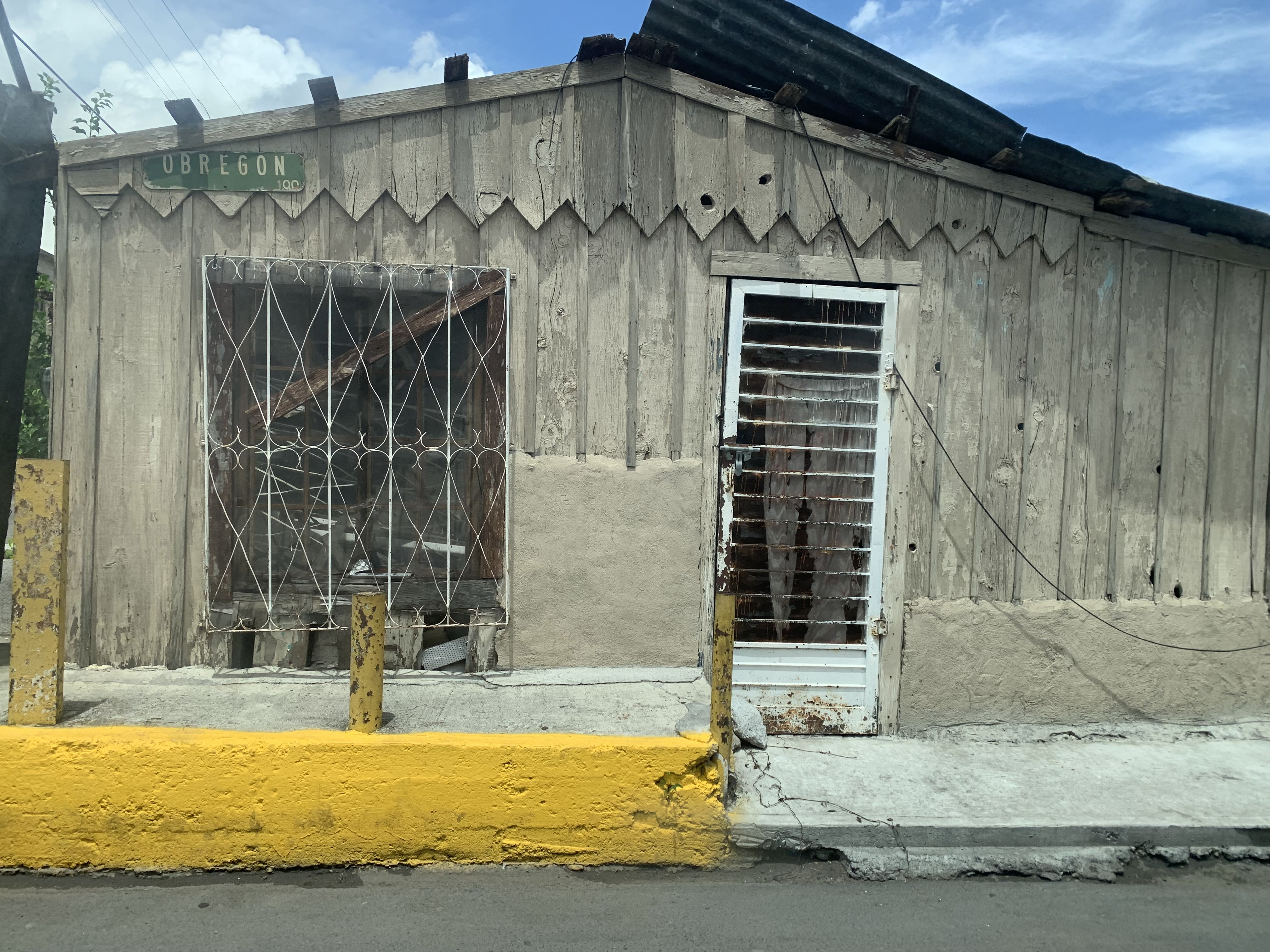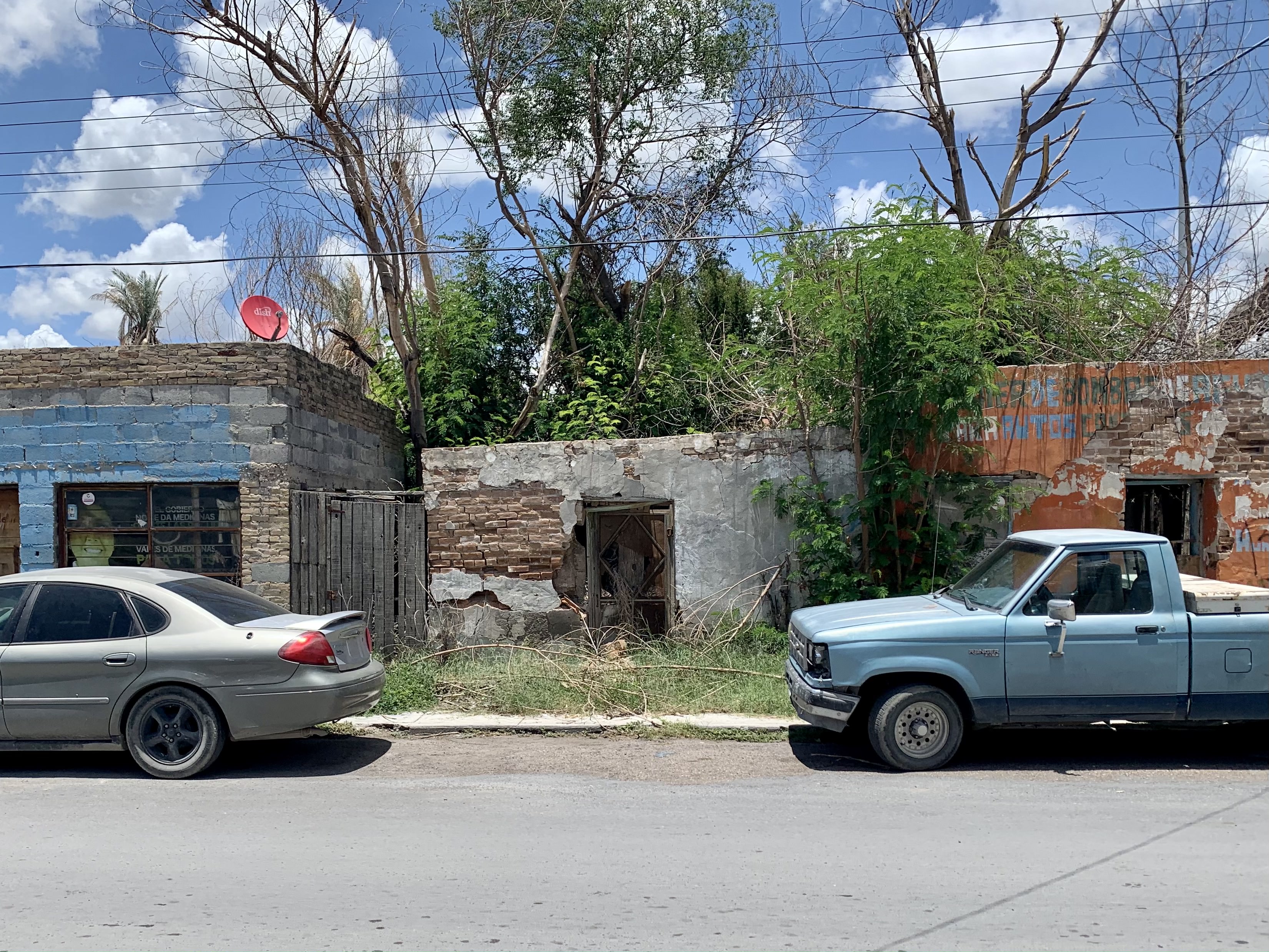
I’m not sure why it took years for me to realize so many houses in Nuevo Laredo, Mexico, the city I grew up in, were abandoned. I think a part of me was afraid that if I admitted one rundown building down the street had no one living in it, then I would come to notice that thousands of others all over town were empty too. Many aren't family homes either, but places that used to house businesses with their painted names still over the door—faded, peeling, incomplete, but still there.
In the early 2000s, much of northern Mexico experienced an exodus, caused by a surge of violence as turf wars broke out along the border between rival organized crime groups in between violent confrontations between police, or stationed federal soldiers. Nuevo Laredo experienced some of the worst of it—in 2004, all police had been expelled from the city, and corpses hanging from bridges became a common sight. There was a period around the first decade of the 21st century when 1,500 families were leaving Nuevo Laredo every month.
In a way, I’m lucky; I was born just as the peace prior to the drug war began to crumble, so I never got intimately acquainted with what it was like before. Where my grandmother says there used to be rows of busy shops, I’ve only ever known empty buildings, boarded up and graffitied. Where I’m told there used to be mariachis eager to serenade tourists who crossed over from Laredo, I’ve only ever known silence. When my own family left, I didn’t have much of an idea of what everyone had lost, so I never noticed the empty houses. As a kid, I always told myself that other families were in there somewhere, doing all the same things I did, living lives like I did, even if I never heard or saw them.
It’s not my intention to say Nuevo Laredo is a ghost town. It’s very much alive, with a Starbucks, an HEB supermarket, a busy downtown—but the empty houses scattered along the streets off the main road remain like scars or open, bleeding wounds of justice that still hasn't come.
Thousands of people left behind everything, on the floors of those buildings long broken into. When I take a good look at them now, I notice each one seems to have a story: Some don’t have doors, some don’t have roofs, some are holding mountains of trash, some have wood over their windows. It’s not safe to wander inside any of them—many have become property of organized crime—but I’ve always dreamt of what they might look like from within. One day, I’d like to look through all the things on their floors to see if I can make out anything of what the people who used to live there did, what they were like, where they went, why they’re gone.









